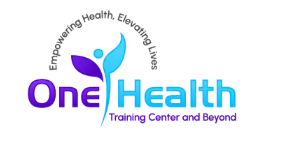Comprehensive Guide to Massachusetts CNA, HHA, and BLS Training Programs

Pursuing a career in healthcare is one of the most rewarding decisions you can make, and Massachusetts offers some of the best opportunities for those looking to enter this field. Whether you aspire to become a Certified Nursing Assistant (CNA), a Home Health Aide (HHA), or earn your Basic Life Support (BLS) certification, there are numerous training programs throughout the state designed to prepare you for success. Each of these roles plays a vital part in supporting patients and healthcare professionals, making them essential pillars of the medical community in Massachusetts.
Understanding the CNA Role and Training in Massachusetts
A Certified Nursing Assistant (CNA) provides direct care to patients in hospitals, nursing homes, and long-term care facilities. CNAs assist with daily activities such as bathing, dressing, feeding, and monitoring vital signs. They work under the supervision of registered nurses (RNs) and licensed practical nurses (LPNs) and play a critical role in patient well-being and comfort.
CNA Training Requirements
To become a CNA in Massachusetts, candidates must complete a state-approved Nurse Aide Training Program. These programs are typically offered by community colleges, vocational schools, and healthcare facilities. The training generally includes 75 to 100 hours of classroom instruction and hands-on clinical practice.
The curriculum covers:
-
Basic nursing skills
-
Infection control and safety procedures
-
Communication and interpersonal skills
-
Anatomy and physiology basics
-
Patient rights and ethics
-
Emergency procedures
After completing the training, students must pass the Massachusetts Nurse Aide Competency Exam, which includes both a written and a practical skills test. Successful completion of this exam allows individuals to be listed on the Massachusetts Nurse Aide Registry, enabling them to work legally as CNAs in the state.
Benefits of Becoming a CNA in Massachusetts
Working as a CNA is an excellent entry point into the healthcare industry. It provides valuable experience and lays the foundation for advancing into nursing or other healthcare specialties. Additionally, Massachusetts offers competitive pay for CNAs, along with a high demand for qualified professionals due to an aging population and expanding healthcare facilities.
Home Health Aide (HHA) Training in Massachusetts
A Home Health Aide (HHA) provides personalized care to patients in their homes, assisting them with activities of daily living. HHAs often work with elderly individuals, people with disabilities, or those recovering from illness or surgery. This role combines compassion with practical caregiving skills, allowing patients to maintain independence while receiving essential support.
HHA Training Program Overview
In Massachusetts, HHA training programs are designed to meet both state and federal standards. Most programs require between 60 and 75 hours of classroom and clinical instruction. The coursework focuses on:
-
Personal care assistance (bathing, dressing, grooming)
-
Mobility and exercise assistance
-
Medication reminders
-
Nutrition and meal preparation
-
Basic first aid and infection control
-
Communication with patients and families
After completing training, individuals can seek employment with home healthcare agencies, hospice care providers, or private clients.
Advantages of an HHA Career
The HHA profession offers flexible work schedules, emotional satisfaction, and strong job security. With the growing need for in-home care, Massachusetts HHAs are in high demand. Many HHAs also use their experience as a stepping stone toward CNA or nursing careers.
Importance of BLS Certification in Healthcare
Basic Life Support (BLS) certification is essential for all healthcare workers, including CNAs, HHAs, nurses, and even medical students. It equips professionals with the skills needed to respond effectively during cardiac or respiratory emergencies.
What Does BLS Training Include?
BLS training programs in Massachusetts are typically offered by hospitals, community health centers, and the American Heart Association (AHA). These courses cover:
-
Adult, child, and infant CPR
-
Use of Automated External Defibrillators (AEDs)
-
Rescue breathing techniques
-
Recognizing life-threatening emergencies
-
Team dynamics in emergency response situations
Most BLS courses take about four hours to complete and result in a certification valid for two years. Renewal is required to keep the certification current, ensuring healthcare professionals stay up to date with the latest emergency response guidelines.
Why BLS Certification Is Crucial
Having BLS certification not only enhances employability but also ensures readiness in life-threatening situations. Many employers in Massachusetts require BLS certification for healthcare roles, including CNA and HHA positions. This certification demonstrates your commitment to patient safety and your ability to act swiftly during emergencies.
Finding the Right Training Program in Massachusetts
Massachusetts offers a wide range of accredited CNA, HHA, and BLS training programs to suit different learning preferences and schedules. Whether you prefer in-person classes or online hybrid options, there are programs available across the state.
Top Places Offering Training
-
Community Colleges and Vocational Schools – Institutions like Bunker Hill Community College, MassBay Community College, and Roxbury Community College offer CNA and HHA programs that combine classroom instruction with clinical experience.
-
Healthcare Facilities – Many hospitals and nursing homes, such as Beth Israel Deaconess Medical Center and Mass General Brigham, host their own in-house CNA training programs.
-
Private Training Centers – Several private academies across Massachusetts specialize in short-term healthcare training, providing flexible schedules for working adults.
-
Online and Hybrid BLS Courses – The American Red Cross and AHA provide online BLS certification options with in-person skills assessments.
Before enrolling, ensure the program is approved by the Massachusetts Department of Public Health (DPH) and meets all state and federal standards.
Career Growth and Opportunities
After completing your CNA, HHA, or BLS training, you can explore multiple career paths within the healthcare sector. CNAs can advance to become LPNs or RNs by pursuing additional education. HHAs can specialize in hospice or dementia care. With BLS certification, professionals can expand their qualifications to roles that require emergency response knowledge.
Healthcare careers in Massachusetts are not only stable but also come with excellent benefits and opportunities for professional growth. According to the U.S. Bureau of Labor Statistics, employment for nursing assistants and home health aides is expected to grow significantly in the coming years, ensuring consistent demand for trained professionals.
Conclusion
The Massachusetts CNA, HHA, and BLS training programs serve as vital stepping stones for anyone seeking a meaningful and stable career in healthcare. Each program equips you with essential skills to provide compassionate, effective care to patients in need. Whether you aim to work in a hospital, nursing home, or private residence, Massachusetts offers top-quality education and certification opportunities that can help you reach your goals.







